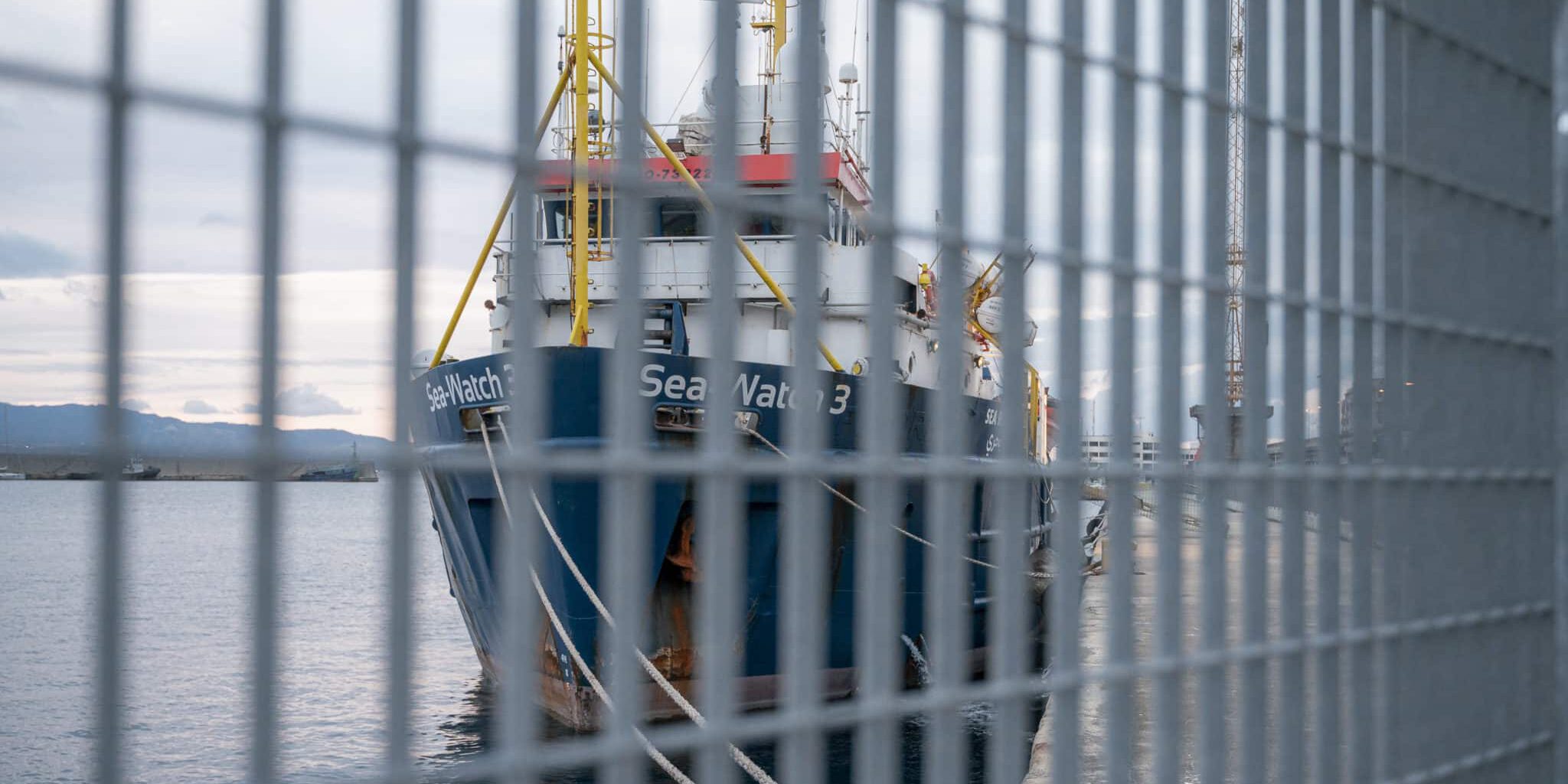After rescuing 428 persons from distress at sea, the Sea-Watch 3 was blocked by Italian authorities on Wednesday evening, 21. September 2022, in Reggio Calabria. However, only at the beginning of August 2022 the European Court of Justice (ECJ) declared arbitrary port state controls (PSC) unlawful. By ignoring the ECJ ruling, the Italian authorities focus once again on the number of rescued people to hinder rescue operations in the Central Mediterranean.
At the beginning of August 2022, the Sea-Watch 3 underwent a regularly scheduled port state control where minor deficiencies were identified. Upon arrival in the port of Reggio Calabria, a rectification survey for corresponding deficiencies was expected. Instead, the Italian authorities performed an extensive PSC, which lasted 13.5 hours and led to the repeated blockade of the Sea-Watch 3.
After port state controls in the past, rescue ships were detained for absurd reasons: they were missing an imaginary certification that doesn’t exist, and too many rescued people were on board. To challenge these arbitrary blockades, Sea-Watch filed a complaint in 2020, which was later forwarded to the ECJ. On August 1, 2022, the ECJ declared that rescue at sea is a duty and port state controls must not be used arbitrarily against NGOs in the future. In its ruling, the ECJ emphasized that Italy can not demand an imaginary certification not existing under the German flag. Also, the number of rescued persons is not a valid reason for detention. While port state controls may continue to take place, they must be carried out on schedule or with a valid reason.
Despite the ruling, the Italian authorities have again focused on a creative way to use the number of rescued people in order to hinder search and rescue efforts in the Mediterranean: by linking the number of rescued people to the ship’s safety, the Italian authorities argue once again that the amount of rescued people poses “a danger to persons, property or the environment” (quote from Inspection Report) as it supposedly comprises the safety of the vessel. In fact, however, the ship’s captain and the organization are constantly reviewing and assessing the safety of the ship during each and every rescue operation, ensuring that all operations are carried out in a safe manner.
The farcical argumentation of having rescued too many people suggests that people should rather be left to drown, ignoring the fact that it is every captain’s duty to render assistance at sea. Additionally, the Italian authorities are contradicting themselves: by making the Sea-Watch 3 crew wait for over a week to be assigned a Port of Safety as well as actively ignoring their own rescue duty in the Central Mediterranean, it is the authorities who actively put rescued people and crews of search and rescue vessels in danger – and not the other way around.
These practices, as well as the arbitrary controls and blockades to pursue one’s political agenda, must be stopped immediately.
Johannes Bayer, board member of Sea-Watch, concludes: “Shortly before the general elections, the Italian authorities are intensifying the criminalization of migration and civil sea rescue. They are once again trying to stop us from supporting people’s right to safety and life by using absurd methods. But they will not succeed because we will continue our work and fight harder than ever.”











